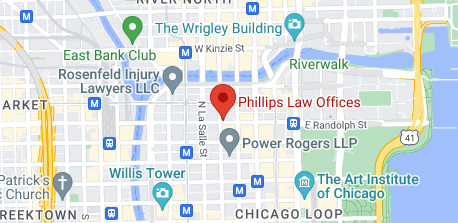Nursing home patients who are elderly carry weak immune systems or other health issues that make them more prone to infections. This does not absolve a nursing home from maintaining reasonable, if not enhanced, standards of care to ensure that its residents are not excessively exposed to infectious diseases. A single patient may have an infection, or multiple residents in the same facility may contract it.
People are more prone to get sick when they live close to one another since many infectious diseases can spread from person to person. There are numerous measures that nursing homes and long-term care facilities, as well as families, can take to stop the spread of sickness and infection. According to a report by DPH Illinois, there are around 1200 long-term care facilities in Illinois, with 10,0000 residents seeking medication. Moreover, certain reports claim one to three million long-term care facility residents are thought to contract an infection every year, and up to 380,000 individuals may pass away as a result.
Nursing facilities’ disregard for effective infection control practices or their failure to provide enough care for elderly patients in need are to blame for the unacceptable high frequency of infections. If any of your elderly family members face infection from the nursing home, it is best to state your claim and seek assistance from a nursing home infections lawyer by Phillips Law Office. We will help you get your claims done and the compensation you deserve.
Some Common Nursing Home Infections-
- Urinary Tract Infections– The most typical illness in nursing homes is urinary tract infection (UTI). When nursing home staff members place catheters for residents, they frequently do so without proper hygiene practices and training, supervision, or hygiene. Every day that a catheter is left in place increases the likelihood of a urinary tract infection in nursing care residents by about 3–7 percent. Most of the inhabitants’ urine will include bacteria after a month.
- Influenza – Due to the close contact with other patients, frequent interactions with staff members and visitors, and insufficient hand washing and sanitizing of communal spaces, flu-like Influenza can swiftly spread from person to person in nursing homes. Although the flu is preventable, it can harm elderly and nursing home patients. According to studies, influenza rates in nursing homes decrease as the number of patients and staff taking annual flu vaccinations increases.
- Infections of the skin and soft tissues – Skin infections are frequently caused by a lack of basic cleanliness and protocols for inspecting residents’ skin. Due to different changes in the skin pattern caused by aging, elderly nursing homes are more susceptible to developing these infections. Erysipelas, necrotizing fasciitis, and cellulitis are common skin infections in nursing homes. Vascular ulcers and diabetic wound infections fall within the category of chronic wound infections. Pressure ulcers can develop because of skin infections that cause the skin to break down. Pressure ulcers that are infected have the potential to cause death as well as secondary infections.
- Pneumonia– Although urinary tract infections are more frequent in nursing homes, pneumonia is a serious infection. Patients going through the feeding tubes have a significantly higher risk of infection than other nursing home residents since 33 out of every 1000 residents developed pneumonia on average. Additionally, residents with dental plaque and poor oral hygiene have a higher chance of pneumonia. And when older adults contract pneumonia, the results could be disastrous. The most common reason for hospitalization and fatalities in nursing homes is pneumonia.
- Infections of the digestive tract – Aging-related changes in gut flora and digestion alterations make digestive tract infections prevalent in nursing homes. The two most prevalent ones are Helicobacter pylori, which can cause fever and nausea, and Clostridium difficile, which typically results from taking antibiotics that suppress the normal flora in the gastrointestinal tract and causes diarrhea. Antibiotic-treated nursing home patients are between 8 and 33% more likely to develop a Clostridium difficile secondary infection.
Since nursing homes and their staff frequently violate fundamental hygiene guidelines, there is a high chance of infectious diseases spreading among nursing home residents. Common sources of infection include shared medical equipment, infected ventilators, catheters, other residents, guests, and staff.

Importance of Cleanliness in Nursing Homes to Avoid Infection
Patients in nursing homes tend to be elderly and unwell. In a care home, communicable infections can spread quickly. Moreover, patients’ immune systems are compromised, making it difficult to fight infections like normal individuals can. In addition, residents at nursing homes share small living spaces. They share a therapy room, eat in the same dining area, and participate in social events. This implies that it just takes a single sneeze for an infectious virus to take over a nursing home quickly.
Most state laws mandate infection control and prevention procedures for nursing homes because of this.
How are Infections Spreading in Nursing Care Home?
In nursing care homes, infections can spread in different ways. Some of these are-
- When patients or nurses come in touch with contaminated blood or body fluids after directly contacting an infected person.
- Indirectly meeting a contaminated object, such as a phone, door handle, or medical equipment. Surfaces that are contaminated may be found in patient rooms or public areas.
- When an infected individual sneezes or coughs, the virus is released into the air as minute droplets or minuscule aerosol particles.
- People-to-people happens when someone touches a contaminated surface before touching someone else without first washing their hands.
Things Nursing Home Residents Should Do?
- Keep washing your hands and apply alcohol-based hand sanitizer, especially before eating or engaging in social activities.
- Any exposed wound should be bandaged. Inform a nurse right away if you need your bandages replaced.
- If you cough or sneeze, make sure to cover your mouth. If you are using tissues, throw them away after one usage.
- Don’t give other residents access to your items or food.
- If you have an infection, put on a mask.
Using Nursing Home Infection Lawsuit
Justice is at stake when a victim of a facility-acquired infection files a claim on their behalf. Nursing homes and other long-term care facilities have stringent rules. To be quite honest, these facilities get donations of millions of dollars from Medicare, or taxpayer money, to care for our elderly.
When a nursing home violates the law and fails to protect its inhabitants from illness, disease, and infection, action must be done. Since practically all nursing home corporation actions are motivated by profit, the civil court system enables you to pursue compensation. We at Phillips Law Offices, our Chicago nursing home infection attorney will help you get the compensation and all required assistance. We will collect all proofs necessary for the claim purpose. By bring the nursing home under the lawsuit, you are saving many elderly lives for life-long.
Get Legal Help from Nursing Home Infections Attorney
If your family members become infected because of a nursing home’s negligence or improper infection control measures, you should ensure your loved one receives the correct medical care and compensation. A lawyer’s advice in this situation stands crucial. Every patient receiving long-term care has a set of rights under the Illinois Nursing Home Care Act. Residents may be able to hold the nursing home accountable if they become ill or get worse because the facility fails to provide them with a clean and homelike environment.
If you or an elderly family member has developed an infection while residing in a nursing facility, please get in touch with our experienced nursing home infections attorney at Phillips Law Offices .
Patients may be entitled to reimbursement for any additional medical expenses and other expenditures related to the hospital-acquired infection they incur. Contact us now and get free consultation from our experts.
Also Read:
How To Claim Lost Wages From Car Accident?






